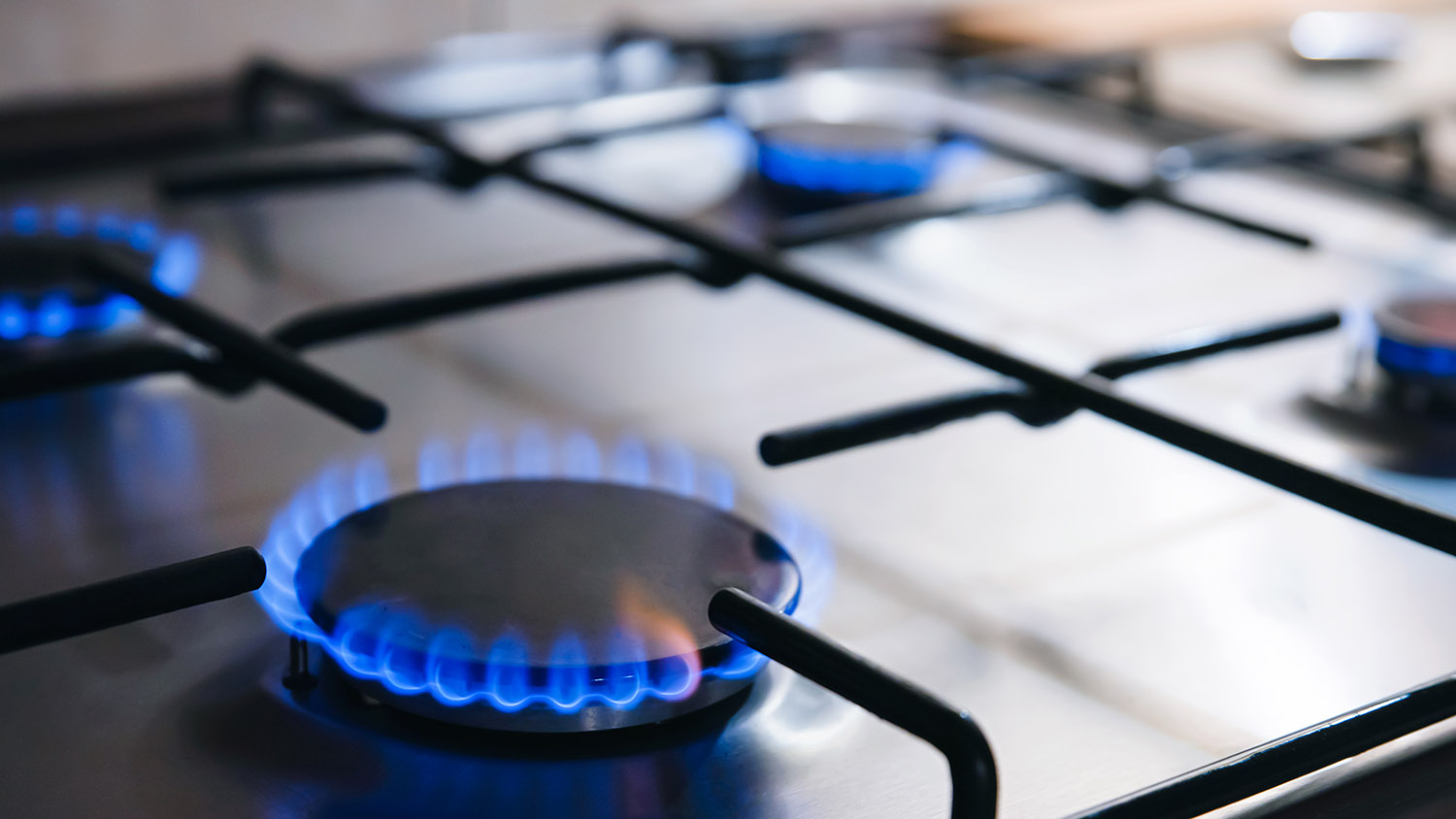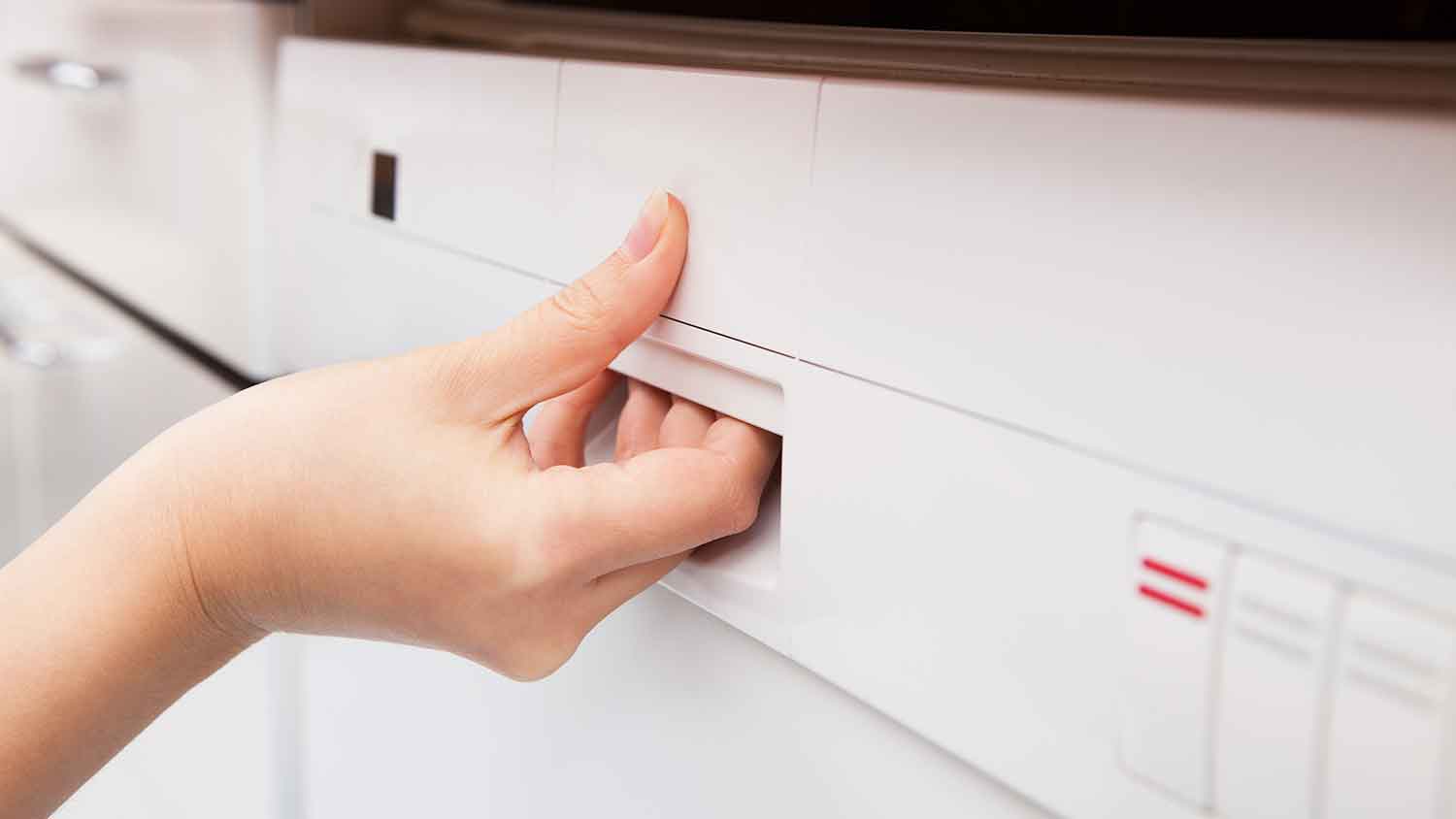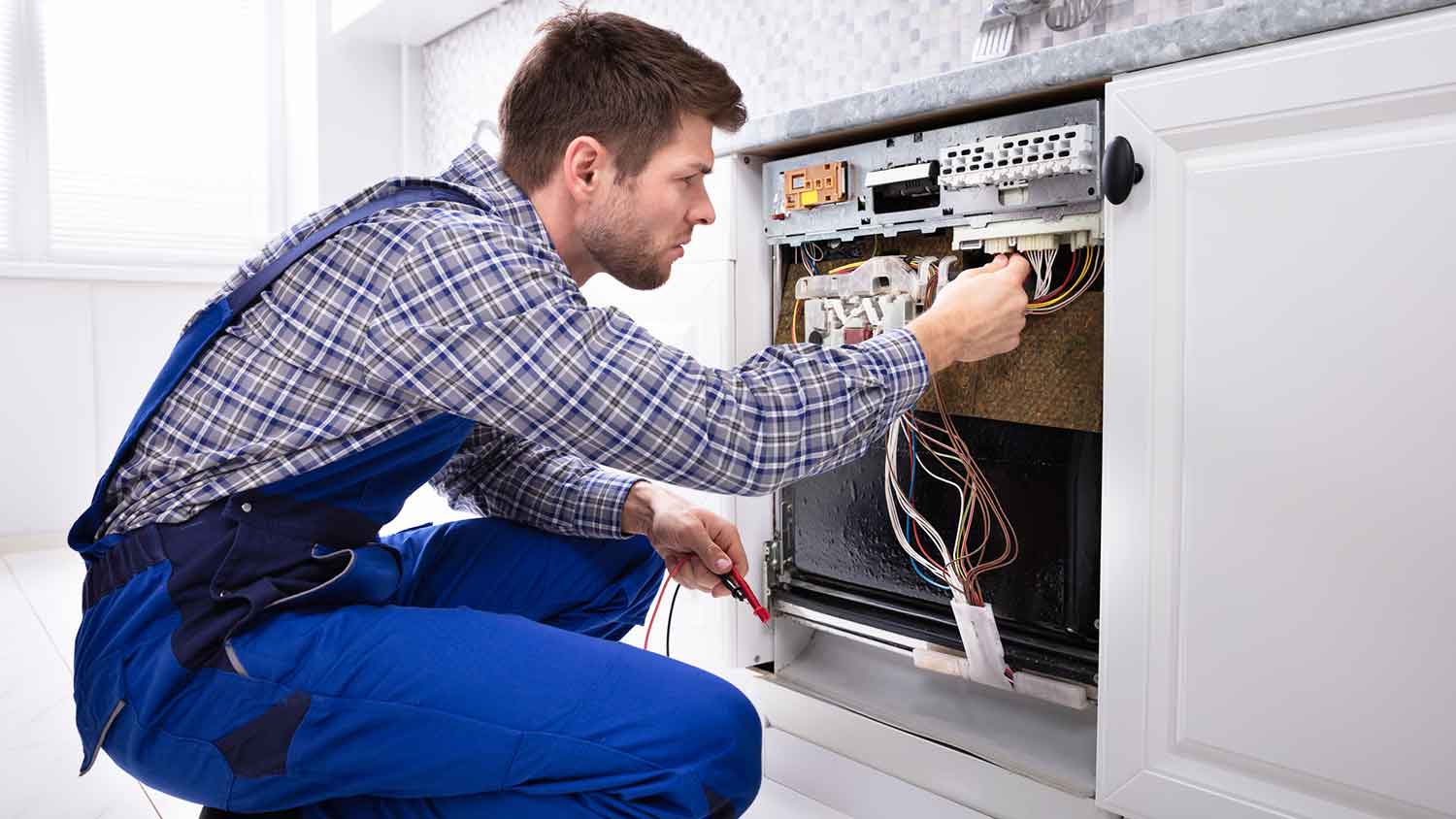
Get a clear estimate for stove repair costs. Learn what impacts pricing, compare repair vs. replacement, and find tips to save on your next stove repair.
Troubleshoot dishwasher issues to find the best solution


Common issues with power or door latches can offer quick solutions.
The dishwasher control panel can encounter a slew of problems.
Normal wear and tear can cause issues with internal components.
The frustration that occurs when a seemingly simple task like starting the dishwasher turns into a perplexing dilemma is all too familiar. There's nothing more puzzling than pressing that power button and encountering silence. If your dishwasher won't turn on, there are a few reasons that stand between you and a freshly cleaned load of dishes.
Before examining the appliance itself, a good first step to assessing a dishwasher issue is to check the power supply. While it's unlikely the unit came unplugged, as they are located behind cabinets, it's a good idea to check anyway. Ensure the plug is securely in place and assess if the wires are damaged or frayed. This will require pulling the appliance out, so make sure you know how to remove a dishwasher before getting started.
If everything with the plug and wire looks to be in shape, check the breaker box. Locate the switch to see if it's turned off or in the center. Either way, turn the breaker off and then back on. Check to see if this resolves your issue before continuing to troubleshoot.

For a dishwasher to do its job, the door requires a tight seal to prevent water from leaking out. If, for some reason, the door isn't latching properly, it tells the appliance it's not safe to run. Check the latch to see if it's jammed or broken. There may be food or other debris in the way, preventing a secure latch, which can be remedied with a simple cleaning. If the latch is broken, it needs to be replaced. You can typically purchase replacement parts for a dishwasher at your local home improvement store or through the appliance manufacturer.
Another common door latch issue that can lead to your dishwasher not turning on is when the child safety latch is enabled. Child safety features are in place to prevent injury and most dishwashers have such features on the control panel or front of the appliance. Check to see if it's enabled, as it would prevent the dishwasher from turning on.
If your dishwasher won't turn on and the lights are flashing or have stopped completely, you may have a hung cycle. This occurs when the dishwasher has stopped partway through a wash cycle and was not restarted properly, causing it to get stuck. Turn your dishwasher off and back on or, if there is a reset button, press and hold it for three to five seconds to reset the appliance.
If your dishwasher isn't responding to commands on the control panel or electronic control board, it could be faulty. This could be due to a wiring issue, a damaged control board, or a malfunctioning touchpad. There are a few ways to troubleshoot exactly what issue you're dealing with.
The control panel features selector switches that determine the wash cycle and settings for each load. You'll know these are damaged if you press selections but nothing happens or if the dishwasher’s response doesn’t match the selection you make. If the selector switches or control panel connections are damaged, they'll need to be replaced. Replacing the selector switches requires disassembling the dishwasher's door to access the connections.
When it comes to appliances, you have to consider the extent of the issue. If it is minor problems or something that simply requires maintenance, then it might be more cost-effective to do a repair. If the failure is a major component of the appliance, then it will likely be easier and more affordable in the long run to just replace it and get peace of mind.
The timer control may also be affected by a faulty control panel. The timer control tells the dishwasher when to start and stop wash cycles, and if this is damaged, the dishwasher won't turn on. This issue would require a similar repair as with selector switches. Some signs that the timer control switch may be malfunctioning include:
The dishwasher is not showing the time remaining in the cycle.
You hear a buzzing or clicking sound at the end of a cycle.
The dishwasher doesn’t automatically switch cycles like it should.
Understand that timer controls rarely fail. Before replacing the timer control switch, consider multiple other possibilities for a dishwasher that won’t turn on.

Normal wear and tear can cause damage to a dishwasher's wiring over time. The wiring connecting the control panel to the circuit board can become faulty, preventing an electrical connection from communicating. If the wire harness is disconnected, the control panel is unable to light up. If you are having control panel issues that aren't remedied by fixing a hung cycle or control switches, the cause might be wire damage.
Dishwashers have a thermal fuse to prevent the circuit board from overheating. If the dishwasher has overheated or a power surge has occurred, the thermal fuse may trip, cutting off the power to the appliance. If the thermal fuse has tripped, it will need to be replaced. You can DIY a thermal fuse replacement, but make sure the power to the appliance is off before getting started.
To circulate water for cleaning cycles, dishwashers have a motor and a pump. The motor operates the pump to move water through the appliance. It also helps the pump generate water pressure. If the motor is not working, the dishwasher often won’t start or run.
If the motor is running at less than peak efficiency or is nearing a breakdown, you may hear loud, odd noises. The water may not move through the dishwasher’s pump properly, either.
The motor also operates the pump that drains the water after the machine runs the cycle. If the appliance is draining properly, but the dishwasher is not drying, the motor is likely not the problem. However, you could have an issue like a malfunctioning heating element.
The motor operates the dishwasher pump to circulate the water inside the unit. The pump generates water pressure to push the water through the spray arms.
If the dishwasher appears to run the cycle properly, but you can tell that water did not move through the spray arms, the pump could be broken. If the water in the dishwasher doesn’t drain properly after running through the entire cycle, the pump could be to blame. However, a faulty pump rarely will cause the dishwasher to not start.
Even though the pump and motor work in tandem, they are two separate pieces. You may only need to replace one of them to fix the problem when the dishwasher won’t start or when it isn’t running properly.
It's not uncommon for food and debris to get caught in a dishwasher drain. In some cases, dishwashers will fail to start if a block or clog in the drain is detected to prevent water from overflowing. Check the drain hose and filter for any obstructions.
While you may know how to unclog a dishwasher, if the dishwasher won't turn on, you won't be able to cycle with a cleaning solution. You can use a snake to remove obstructions yourself, but it's usually best to hire a plumber to take care of the issue if it's preventing your dishwasher from turning on. They have the tools and skills necessary to get the job done well.
When your dishwasher won’t start, you can try troubleshooting a few simple problems yourself.
Check the dishwasher’s circuit breaker on your home’s circuit panel. If the circuit is tripped, reset it to ensure the dishwasher has power.
Check the door latch to see if food particles or grime are blocking it open, preventing the unit from starting.
Check the filter in the base of the appliance to see if it’s clogged with debris.
Check the child safety features on the dishwasher’s control panel. If they’re accidentally engaged, the machine won’t start.
Reset the dishwasher by shutting down the power source for a few minutes. You can do this at the circuit breaker or by unplugging it if it uses an accessible outlet. If the dishwasher has a reset button, press and hold it for a few seconds.
If you can’t figure out the problem after some basic troubleshooting or if the problem likely involves the motor, pump, or control panel, call a local dishwasher repair professional.
You’ll then have to decide if the cost of the repair is a better option than buying a replacement unit. The average life span of a dishwasher is between 10 and 15 years. As long as the dishwasher is still at least a few years away from entering this range, repair often is the better choice.
The average dishwasher repair costs $160 to $300, while a new dishwasher cost with the installation runs between $1,000 and $1,500. A local dishwasher installation pro can give you an accurate estimate for the installation cost, which you can add to the purchase cost to determine the true cost of replacement.
From average costs to expert advice, get all the answers you need to get your job done.

Get a clear estimate for stove repair costs. Learn what impacts pricing, compare repair vs. replacement, and find tips to save on your next stove repair.

Garbage disposals last five to 10 years, and replacement is preferred over repairs. Here’s everything you need to know about replacing your garbage disposal.

One of the most common fridge problems is a blown compressor motor. Use this guide to determine the cost of replacing the compressor and to estimate the total cost of your repair.

Gas stoves are the center of many meals, and when they break down, homeowners are left scrambling. Find out who you can call to fix your gas stove.

Knowing which types of dryer plugs you should use will help keep your home safe from a fire hazard. Here's what you need to know about 3-prong versus 4-prong dryer plugs.

If you notice your dryer vent leaking water, you could be prone to mold growth and water damage. Use this DIY guide to remedy the issue right away.